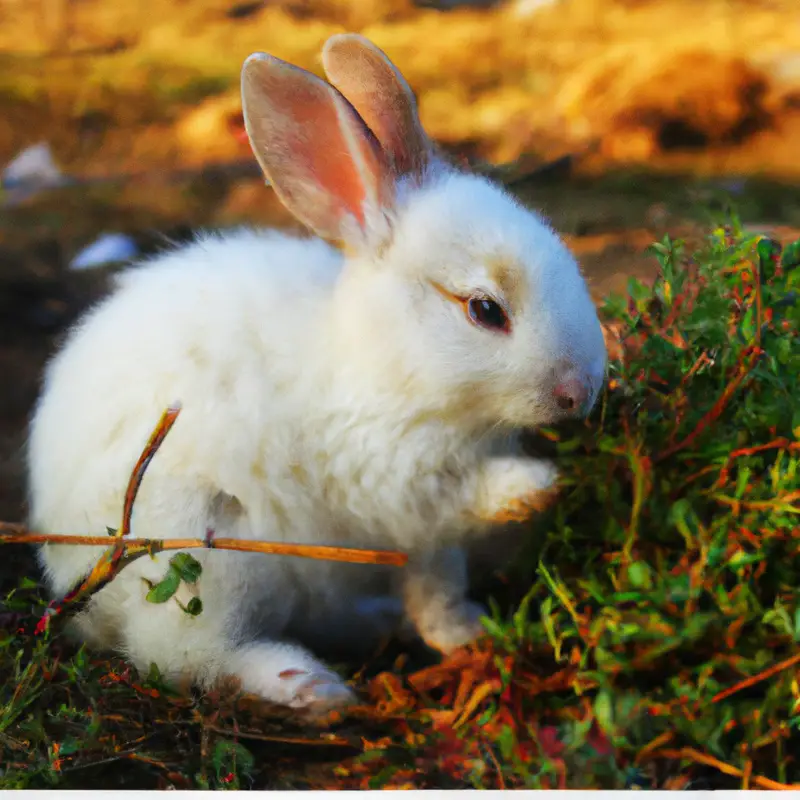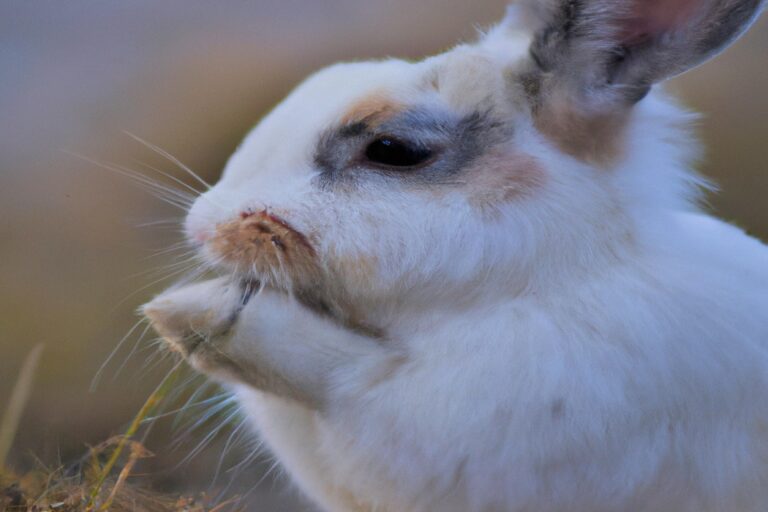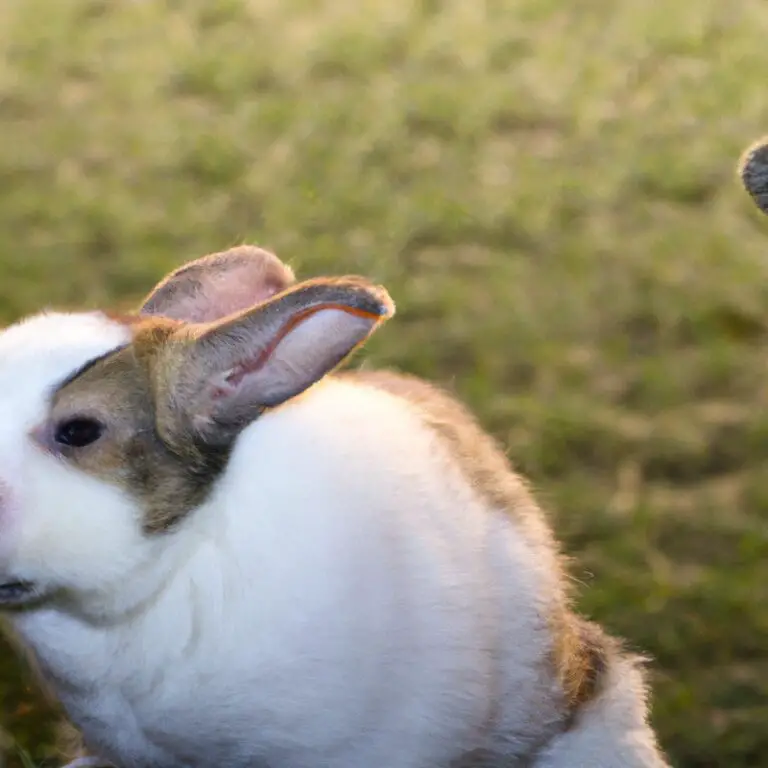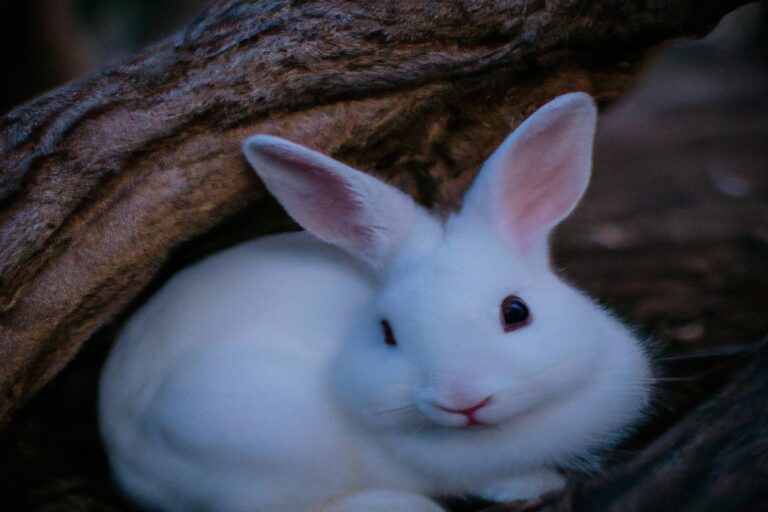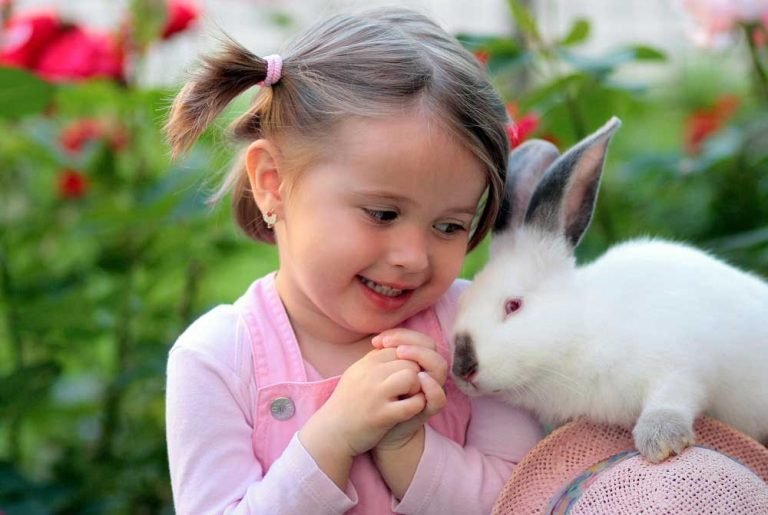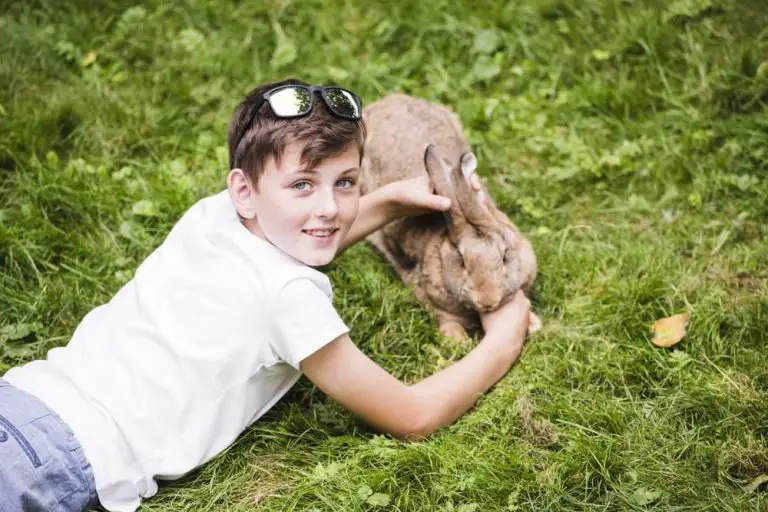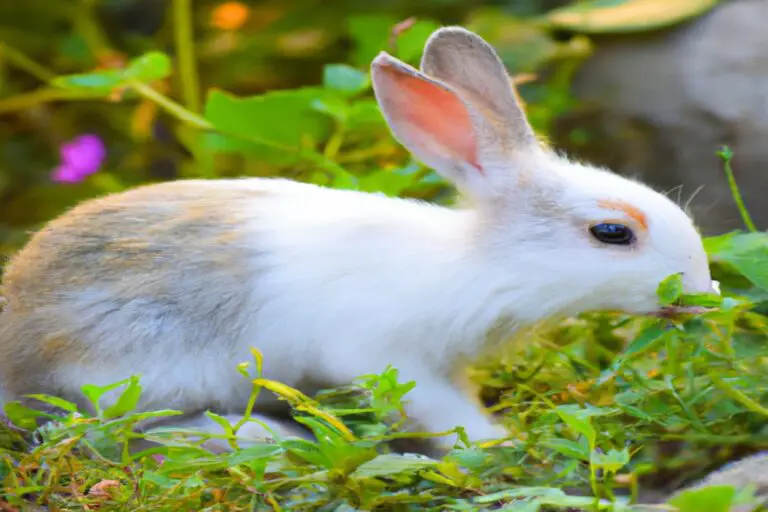Why Is My Rabbit Breathing Fast While Lying Down? Discover the reasons!
Key Takeaways:
- 1) Rapid breathing while lying down can be an indicator of stress or discomfort in rabbits.
- 2) Respiratory infections or issues with the heart may cause fast breathing in rabbits.
- 3) It is important to monitor your rabbit’s behavior and consult a veterinarian if rapid breathing persists.
- 4) Environmental factors, such as heat or low air quality, can also contribute to fast breathing in rabbits.
Are you concerned about your rabbit’s breathing?
It’s important to pay attention to your furry friend’s behavior and understand what it means.
One common question that rabbit owners ask is, “Why is my rabbit breathing fast while lying down?” This blog article will explore the possible reasons behind this behavior and what you can do to help your rabbit.
Whether it’s a normal breathing pattern, a response to stress, or a sign of a more serious underlying condition, we’ll dive into the topic and provide valuable insights.
So, let’s get started and ensure your bunny’s well-being!
| Reasons | Possible Causes |
| Rabbit is overheated | Hot weather, lack of ventilation, stress |
| Rabbit is in pain or distress | Injury, illness, anxiety |
| Rabbit has a respiratory infection | Bacterial or viral infection |
| Rabbit is experiencing respiratory congestion | Heart disease, lung problems |
| Rabbit is stressed or frightened | Loud noises, sudden movements, predator presence |
The Importance of Understanding Rabbit Behavior
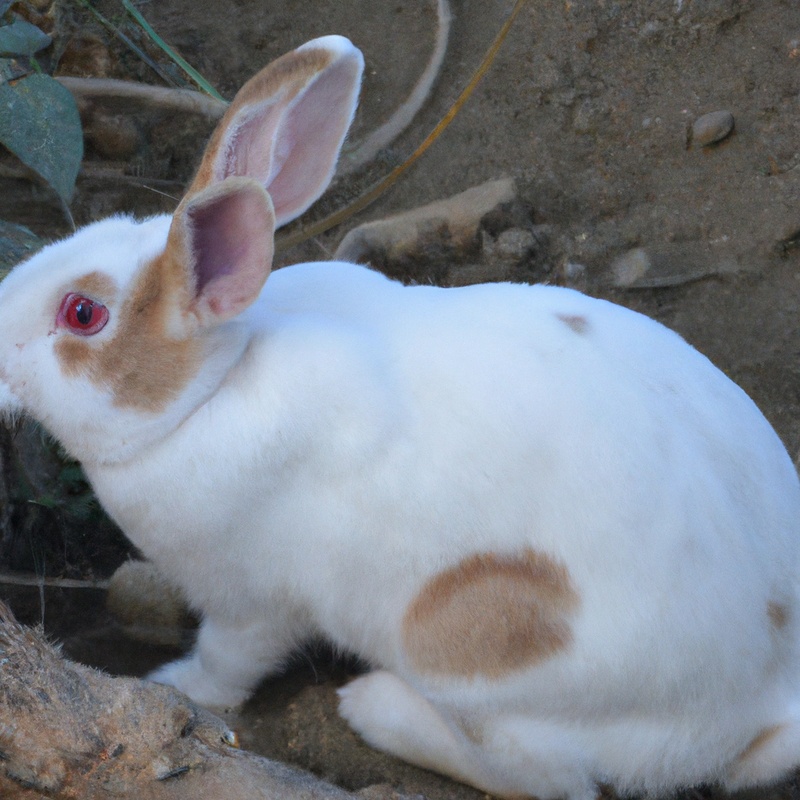
Why is My Rabbit Breathing Fast While Lying Down?
If your rabbit is breathing fast while lying down, it could be a sign of an underlying health issue.
Normal Breathing Patterns in Rabbits
Rabbits have specific normal breathing patterns that can vary depending on their activity level and the state of their health.
Generally, a rabbit’s breathing should be quiet, regular, and without any obvious effort.
They typically breathe through their nose, and you may notice slight movement of their nostrils as they inhale and exhale.
Additionally, rabbits may take quick, shallow breaths when they are excited or exercising.
If your rabbit is breathing rapidly while lying down and shows other signs of distress, it’s important to consult a veterinarian as it could indicate a health issue.
Potential Causes of Fast Breathing in Rabbits
Rabbits may breathe fast while lying down due to various reasons. Some potential causes of fast breathing in rabbits include:
- Heat stress: Rabbits are prone to overheating, which can lead to increased respiratory rate.
- Respiratory infection: Infections such as pneumonia can cause rapid breathing in rabbits.
- Heart disease: Certain heart conditions may result in fast, labored breathing.
- Pain or stress: Rabbits may exhibit rapid breathing when they are in pain or feeling stressed.
- Obesity: Overweight rabbits may experience difficulty breathing, resulting in faster respiration.
It’s important to consult a veterinarian if you notice unusual breathing patterns in your rabbit, as it could be a sign of an underlying health issue.
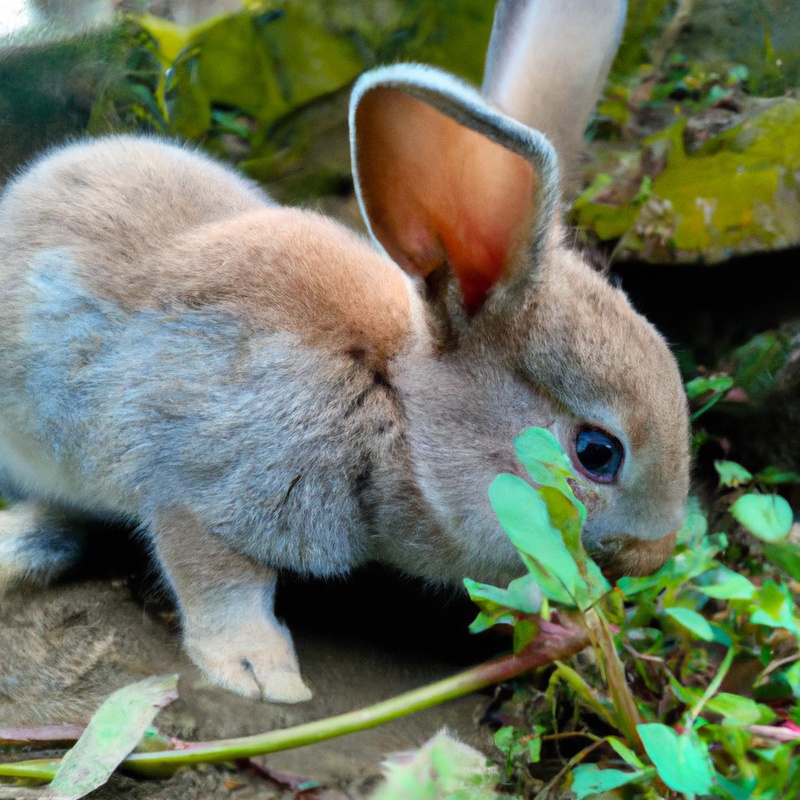
Heat and Overheating
Heat and overheating can be serious issues for rabbits. Rabbits are sensitive to high temperatures and can quickly become overheated, which can lead to heatstroke and even death.
It is important to provide your rabbit with a cool and well-ventilated environment.
Avoid placing them in direct sunlight or in an area that lacks proper airflow. Make sure to provide them with plenty of fresh water and consider using cooling methods such as fans, ice packs, or frozen water bottles to help keep them cool.
Regularly monitor your rabbit’s breathing and behavior, and seek immediate veterinary care if you notice rapid breathing or signs of distress.
Stress or Fear
Stress or fear can cause rabbits to breathe fast while lying down.
Just like humans, rabbits can experience emotions that affect their breathing.
Stressors like loud noises, unfamiliar environments, or changes in routine can trigger rapid breathing.
Similarly, fear-inducing situations, such as being chased or handled forcefully, can also cause rabbits to breathe quickly.
It’s important to create a calm and peaceful environment for your rabbit to help reduce their stress and fear levels.
Providing a safe space and handling them with gentleness and care can help alleviate their rapid breathing.
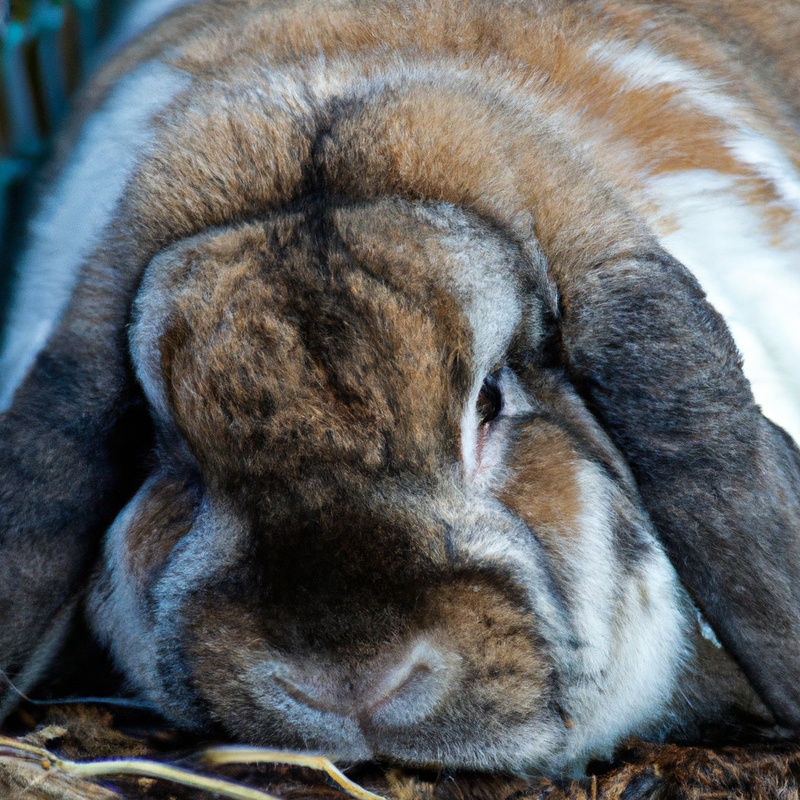
Respiratory Infections
Respiratory infections in rabbits can be a serious concern. They can cause symptoms such as rapid breathing, coughing, sneezing, and nasal discharge.
These infections are often caused by bacteria or viruses and can be contagious among rabbits.
It’s important to seek veterinary care if you suspect your rabbit has a respiratory infection. Treatment may involve antibiotics, supportive care, and proper hygiene to prevent the spread of the infection.
Regular check-ups and a clean living environment can help prevent respiratory infections in rabbits.
Heart or Lung Conditions
Heart or lung conditions can cause rabbits to breathe fast while lying down. These conditions may include heart disease, respiratory infections, or even pneumonia.
If your rabbit is experiencing rapid breathing in this position, it is important to seek veterinary care as soon as possible.
These conditions can be serious and require proper diagnosis and treatment from a professional. Regular check-ups and a healthy diet can help prevent some of these conditions.
When to Seek Veterinary Care
If you notice that your rabbit is breathing fast while lying down, it’s important to know when to seek veterinary care. Here are some signs that indicate it’s time to take your rabbit to the vet:
- Difficulty breathing: If your rabbit is struggling to breathe or their breathing sounds labored, it could be a sign of a serious respiratory problem.
- Blue or pale gums: This could indicate a lack of oxygen or an underlying health issue that needs immediate attention.
- Lethargy and loss of appetite: If your rabbit is unusually lethargic and not eating, it may be a sign of a serious illness.
- Wheezing or coughing: These symptoms can be indicative of respiratory infections or other respiratory issues.
- Nasal discharge or sneezing: Excessive discharge from the nose or frequent sneezing can be a sign of an upper respiratory infection.
- Change in behavior: If your rabbit is displaying unusual behavior such as hiding, aggression, or excessive nesting, it could be a sign of pain or illness.
Remember, rabbits are fragile animals and can deteriorate quickly if not treated promptly. If you notice any of these signs, it’s important to seek veterinary care as soon as possible to ensure the health and well-being of your bunny.
Tips to Help Your Rabbit
Help your rabbit by creating a comfortable and cool environment.
Provide a Comfortable and Cool Environment
To provide a comfortable and cool environment for your rabbit, there are a few things you can do.
- Make sure your rabbit’s living area is well-ventilated and not exposed to direct sunlight.
- Provide plenty of fresh water to keep your rabbit hydrated.
- Place cooling mats or tiles in your rabbit’s enclosure for them to rest on.
- Use fans or air conditioning to keep the temperature low during hot weather.
- Avoid placing your rabbit’s enclosure near heating sources or in areas with high humidity.
By taking these steps, you can ensure that your rabbit stays cool and comfortable in their environment.
Minimize Stress and Provide a Sense of Security
To minimize stress and provide a sense of security for your rabbit, there are a few key things you can do.
Firstly, create a quiet and comfortable environment for your rabbit by providing a cozy hiding spot and reducing loud noises.
Additionally, establishing a consistent routine and maintaining a clean living space can help your rabbit feel more safe and secure.
Finally, make sure to spend quality time with your rabbit, providing gentle and positive interactions to build trust and strengthen your bond.
Monitor Your Rabbit’s Behavior and Symptoms
Pay close attention to your rabbit’s behavior and symptoms to ensure their well-being.
Keep an eye out for any changes in their eating habits, drinking patterns, and activity levels.
Monitor their breathing rate and any signs of labored breathing.
Also, be aware of any discharge from their eyes, nose, or mouth.
Additionally, keep an eye on their body posture and check for any lumps, injuries, or abnormal swelling.
If you notice any unusual behavior or symptoms, it’s important to consult with a veterinarian as soon as possible for proper evaluation and treatment.
Seek Veterinary Care and Follow Their Advice
If you notice that your rabbit is breathing fast while lying down, it’s important to seek veterinary care as soon as possible. Rapid breathing can be a sign of various underlying health issues, some of which can be serious.
When you visit the vet, make sure to provide them with all the relevant information about your rabbit’s symptoms and behavior.
Listen to their advice carefully and follow any treatment or care instructions they give you. Your vet is the best source of guidance for your rabbit’s health.
Frequently Asked Questions (FAQs)
Can rabbits have heatstroke?
Yes, rabbits can have heatstroke. They are sensitive to high temperatures and can quickly become overheated.
When rabbits are overheated, their bodies struggle to regulate their temperature and this can lead to heatstroke.
Some signs of heatstroke in rabbits include rapid or labored breathing, lethargy, and collapsing. It’s important to keep your rabbit’s environment cool, provide shade, and ensure they have access to fresh water at all times to prevent heatstroke.
If you suspect your rabbit has heatstroke, seek veterinary care immediately.
Should I be worried if my rabbit breathes fast occasionally?
If your rabbit breathes fast occasionally, it is usually not a cause for immediate concern.
Rapid breathing can be normal, especially after exercise or when the rabbit is excited.
However, if your rabbit’s fast breathing is accompanied by other symptoms like lethargy, loss of appetite, or discharge from the nose or eyes, it’s best to consult with a veterinarian.
They can help determine the underlying cause and provide appropriate treatment if necessary.
Can stress cause respiratory issues in rabbits?
Stress can indeed cause respiratory issues in rabbits. When rabbits are exposed to stressful situations, their bodies release stress hormones that can impact their respiratory system.
This can lead to rapid breathing or even difficulty breathing.
It’s important to create a calm and stress-free environment for your rabbit to prevent respiratory issues. Providing them with a quiet space, proper diet, and enrichment can help reduce stress and keep their respiratory system healthy.
Regular check-ups with a veterinarian can also help catch any potential respiratory issues early on.
How can I keep my rabbit’s environment cool?
To keep your rabbit’s environment cool, there are a few things you can do. Provide plenty of shade in their living area, such as a covered enclosure or a shady spot in the yard.
You can also place frozen water bottles or ceramic tiles in their living space for them to lie on.
Consider using a fan or providing a cooling mat for them as well. Lastly, make sure they have access to fresh water at all times to stay hydrated.
What are some signs of a respiratory infection in rabbits?
Some signs of a respiratory infection in rabbits include fast breathing, sneezing, coughing, wheezing, nasal discharge (runny nose), and difficulty breathing. Additionally, you may notice a reduced appetite or lethargy in your rabbit.
If you observe any of these symptoms, it’s important to consult a veterinarian for a proper diagnosis and treatment.
How can I make my rabbit feel safe and secure?
To make your rabbit feel safe and secure, here are a few things you can do:
- Provide a cozy and comfortable living environment: Make sure your rabbit has a quiet space with hiding spots, such as a covered hidey house or a cardboard box with an entrance cutout.
- Establish a routine: Stick to a regular schedule for feeding, cleaning, and playtime. This will help your rabbit feel more secure and know what to expect.
- Avoid sudden loud noises or movements: Rabbits are sensitive creatures, so try to create a calm and quiet environment for them.
- Spend quality time with your rabbit: Building a bond with your rabbit through gentle petting and interactive play can help them feel safe and loved.
- Offer plenty of fresh hay and water: These essentials are not only important for your rabbit’s physical health but also contribute to their overall sense of security.
Remember, every rabbit is unique, so take the time to understand your rabbit’s individual needs and preferences to truly make them feel safe and secure.
Final Verdict
It is crucial for rabbit owners to understand their pet’s behavior and be aware of any changes, including fast breathing while lying down.
While fast breathing can sometimes be normal, it can also indicate underlying health issues.
Heat, stress, respiratory infections, and heart or lung conditions are potential causes.
It is important to seek veterinary care if you notice any concerning symptoms or if your rabbit’s breathing does not return to normal.
Providing a comfortable environment, minimizing stress, and monitoring your rabbit’s behavior are essential in helping them feel safe and secure.
By following these tips and seeking professional advice, you can ensure the well-being of your rabbit and address any potential health concerns promptly.

